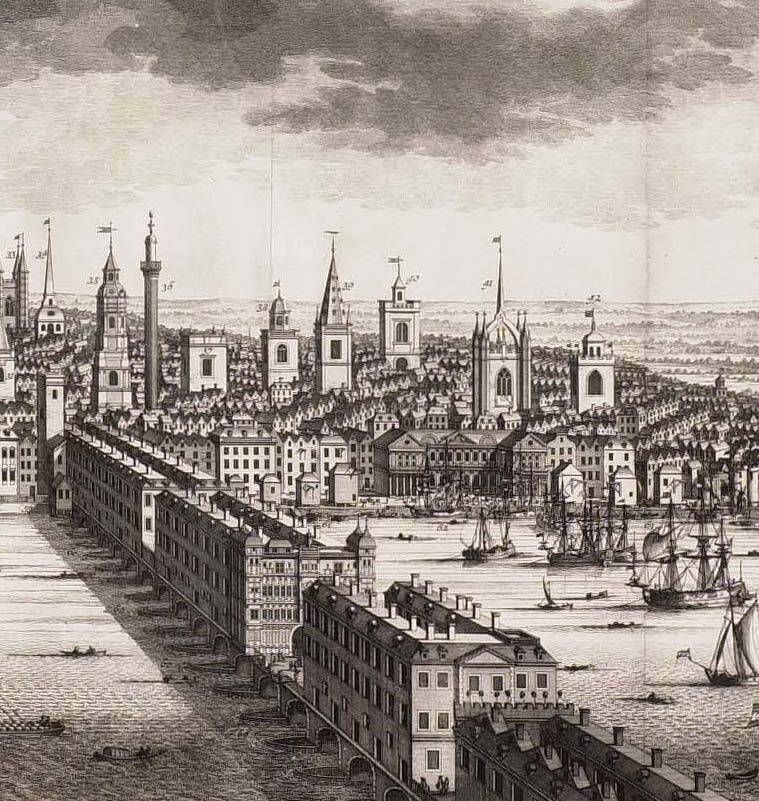The Dark Possible Meaning Of The Nursery Rhyme “London Bridge Is Falling Down”

Public DomainOld London Bridge in an early 18th-century illustration.
Perhaps it’s not too surprising that the nursery rhyme “London Bridge Is Falling Down” could have a dark meaning. Though the tune is beloved by children, it is, at the end of the day, about the collapse of a bridge.
Indeed, this nursery rhyme’s origin could be a literal one. Though the rhyme first became popular in the 1850s, according to History Daily, it’s actually much older. And the rhyme may refer to one of many times that early versions of the London Bridge were destroyed or almost destroyed.
In 1014, for example, Viking leader Olaf Haraldsson allegedly destroyed the bridge, and Norse rhymes about the attack bear similarities to the London Bridge rhyme. (However, the historical accuracy of this attack is unknown.) Part of the bridge was also badly damaged by ice in 1281, and 17th-century fires, including the Great Fire of London in 1666, also wreaked havoc on the bridge. In 1831, the bridge was also purposely demolished and rebuilt.

Public DomainVikings on the London Bridge, during an alleged 11th-century attack, which some sources claim destroyed the structure.
Thus, it could be that the London Bridge nursery rhyme has literal origins. But it’s also possible that this beloved rhyme has a much darker backstory.
In The Traditional Games of England, Scotland and Ireland, which was written by Alice Bertha Gomme in the late 19th century, the author suggests that the London Bridge rhyme has to do with the gruesome practice of immurement. Immurement was both a form of medieval punishment and sacrifice, in which the victim was encased in a room and left to die.
Gomme suggests that someone — or several someones — might have been encased inside the bridge to “bless” it and to ensure that it would never collapse. Indeed, part of the rhyme goes: “Take the key and lock her up / Lock her up, Lock her up / Take the key and lock her up / My fair lady.”
That said, there is no archaeological evidence that any sort of immurement sacrifice was ever practiced at London Bridge.





